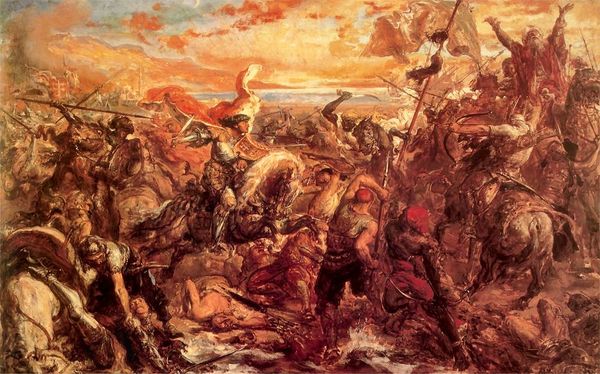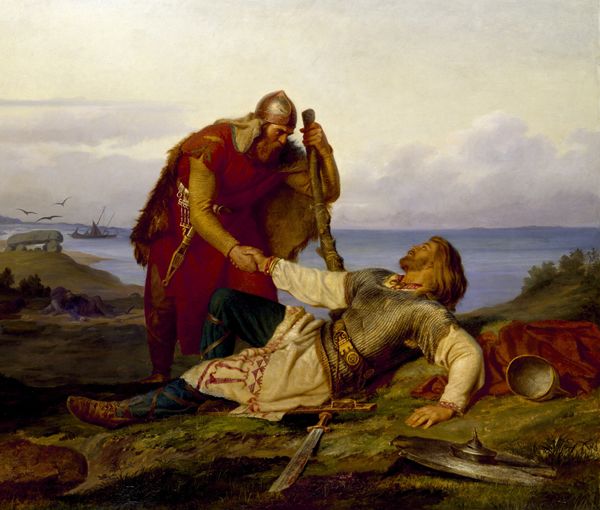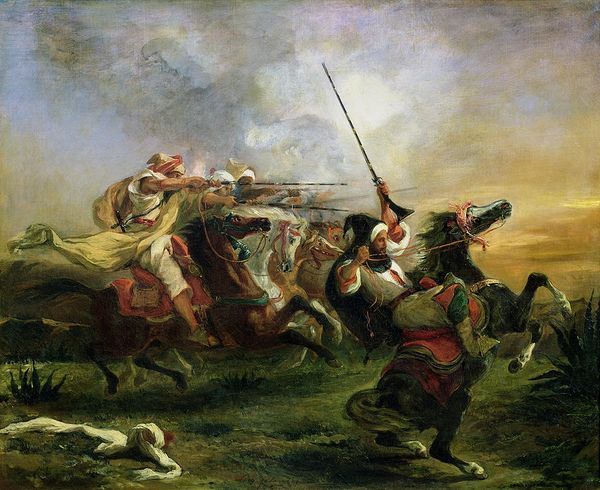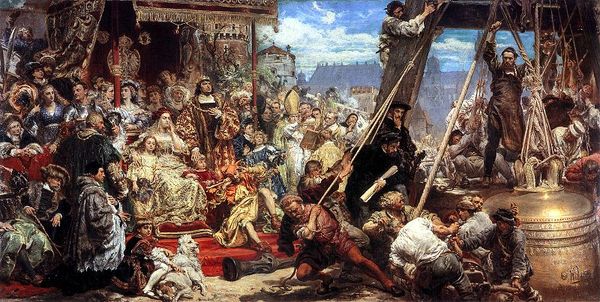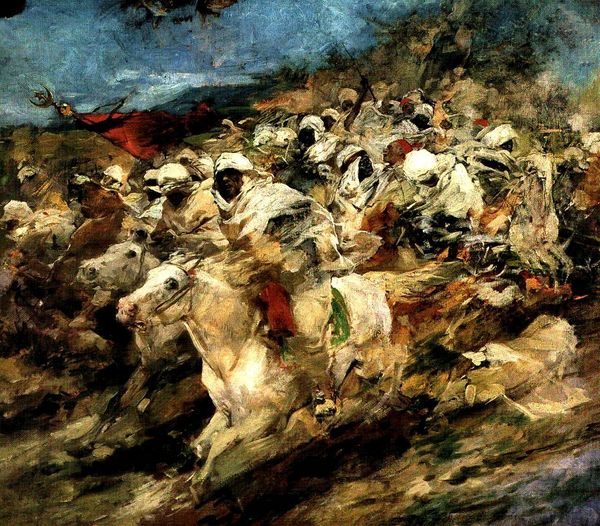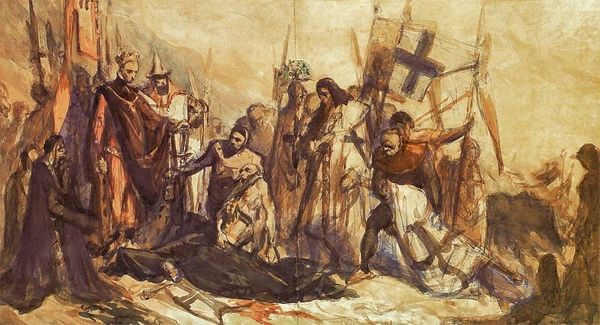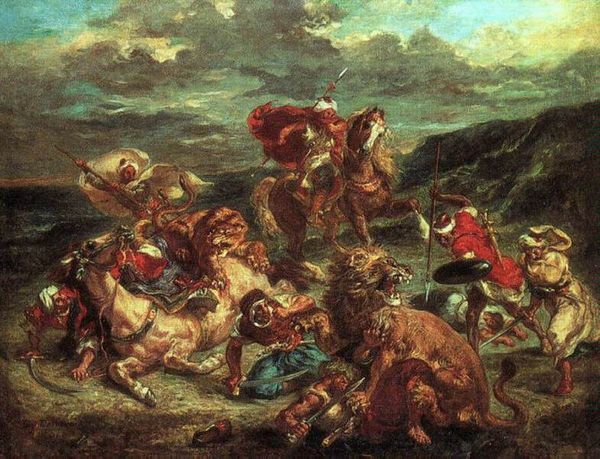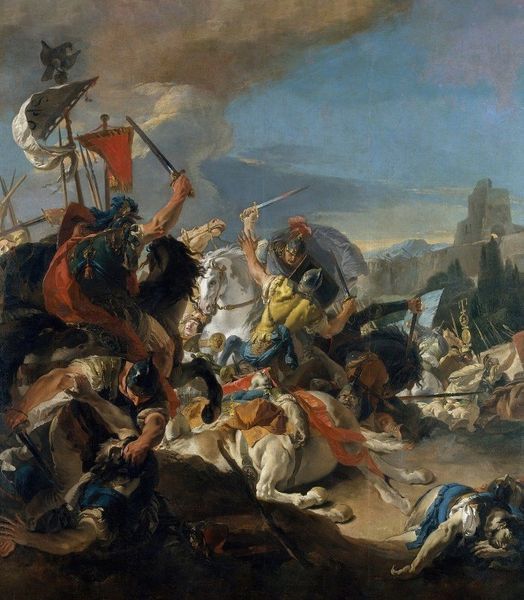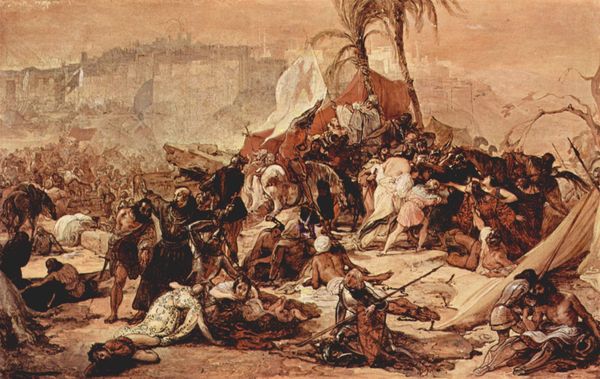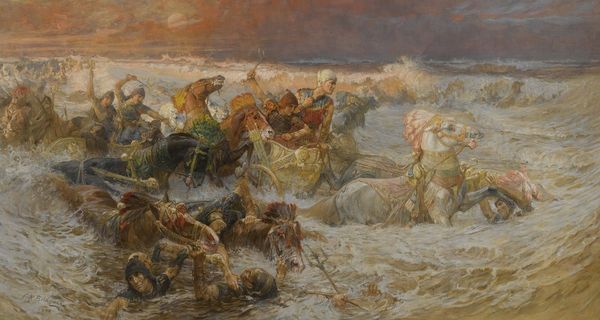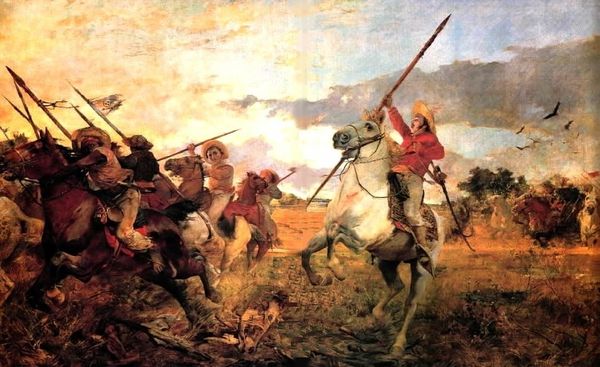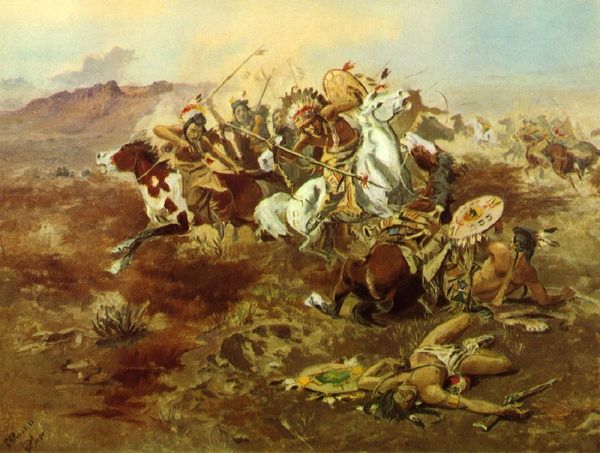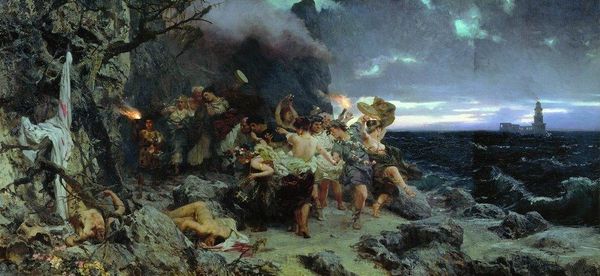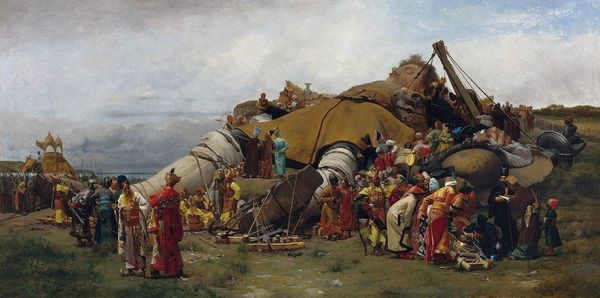
Copyright: Public domain
Curator: Arturo Michelena's "Pentesilea," painted in 1891, immerses us in a pivotal, tumultuous moment. The canvas overflows with figures locked in a struggle, an oil painting that captures a blend of vulnerability and brute force. Editor: Wow, the sheer chaos hits you first, doesn't it? Like a symphony of bodies and horses colliding, painted in colors that somehow feel both earthy and otherworldly. Makes you wonder what story’s being spilled on the canvas here. Curator: This work draws upon the Greek myth of Pentesilea, the Amazonian queen who fought in the Trojan War. Michelena depicts the aftermath of a battle, exploring themes of power, gender, and mortality. It’s very much a historical painting situated within a Romantic style. Editor: Romantic, alright! But tragic-romantic. The light is gorgeous, no doubt, but the way it falls on the...defeated figures? Heavy stuff. It’s as if beauty and destruction are dancing together in this swirl of oil paints. A real memento mori moment, eh? Curator: Absolutely. The piece resonates with a post-colonial critique and feminist undertones. The nude bodies, particularly of women, can be interpreted as a comment on the brutal vulnerability and exploitation inherent in warfare. These are women warriors stripped bare, rendered as objects even in death. It’s quite the indictment. Editor: I get that—but isn't there also something powerful, albeit disturbing, in the rawness of it? It's like Michelena ripped open a vein and poured truth onto the canvas. Academic art, maybe, but also gut-wrenchingly human. Makes you think of power structures but more as an expression of humanity. It is more intimate that academic art generally aims to be, it does transcend a need to only teach. Curator: Agreed. It's interesting how Michelena uses the Romantic idiom, this heightened drama and expressive brushwork, to question traditional narratives. The painting allows us to reflect on intersectional themes, acknowledging gender, race, and identity within this context. It prompts consideration about who writes history and how power affects representation. Editor: Well, I’m seeing all kinds of things here that will give me food for thought. From technique to a wider reading of historical conflicts. Good thing we stopped! Curator: Indeed. It allows us to look critically and maybe appreciate what lies beneath that aesthetic veneer.
Comments
No comments
Be the first to comment and join the conversation on the ultimate creative platform.
